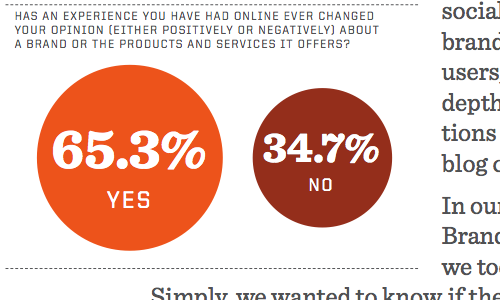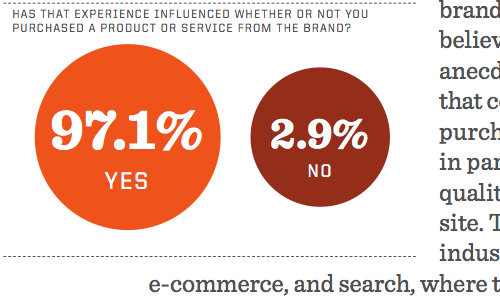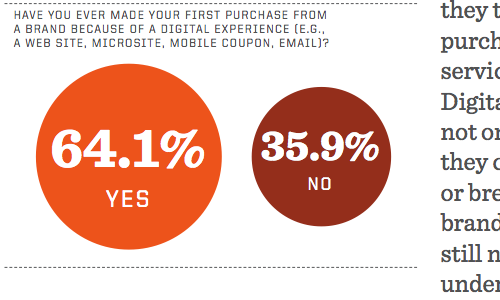Over the course of the last few weeks, AdAge has had an ongoing debate about the future (and present) role of agencies in general and the digital agency business in particular. The debate was kicked-off by Ana Andjelic and her piece titled Why Digital Agencies Aren’t Ready to Lead, in which she stated:
Digital agencies impress clients with their passion, drive and technology know-how. Clients then say: „You gave us a lot to think about.“ Which often means that the account is awarded to someone else. Where digital shops fail is giving confidence to the client that all this momentum will be indeed executed in a well-led marketing campaign.
Jacques-Hervé Roubert countered this attack by simply stating the opposite: Why Digital Agencies Are Indeed Ready to Lead. He writes:
Like it or not, the days of the ingenious, 30-second TV spot are over. Today’s creative ingenuity lies within the idea, the technology, the concept, the innovation and, perhaps most important, the Holy Grail: consumer connection. Word of mouth is more prevalent than ever and interactive communities have an increasingly louder and more influential voice and are stronger (and sometimes the only) sources of breaking news stories. No one understands this better — nor is better equipped to handle the swift demands required — than the digital agency.
Mitch Joel then even took the time to explain why both are right and wrong at the same time. Sounds weird? It isn’t. Here’s why:
The brands that are getting the best results are the ones who are bringing both traditional and digital marketing shops around the table and working in tandem to figure out a creative brief that is in-line with the overall business strategy, and then letting each agency go off and lead/create the right engagement for the right audience for the specific media channels that they are best at. Creative rarely „wins“ when the digital agency is simply translating a TV spot into an online campaign, and traditional agencies will have an equally hard time trying to translate a vibrant online community into a Cannes-winning ad campaign.
On a sidenote, the debate branched off to the question whether big digital agencies (like Digitas, Tribal DDB and Agency.com) are still needed or could and maybe should be replaced by smaller shops (like Big Spaceship, Firstborn and EVB who superseded the former three at Wrigley). Tim Williams, the founder of Ignition, now takes the debate to a new level with his AdAge piece on 15 Risks You Can’t Afford Not to Take. Out of his comprehensive list with many valid points, perhaps the most influential point would be the last:
15. Selling hours worked instead of value created. It’s time for agencies to come to grips with what they’re really selling. Clients don’t buy your costs (your hours, overhead or FTEs), they buy the value you create for their brands. Yet agency accounting and compensation models are built around time and efficiency rather than outcomes and effectiveness. Especially given the increasing cost pressures from clients, it’s time for agencies to start counting the right things and craft compensation approaches that align the economic incentives of the agency with those of the client.
As Peter Drucker once said, „You can’t manage change; you can only be ahead of it.“ Agencies, no matter how smart or resourceful, won’t be able to manage their way out of these disruptive changes in the marketplace. They can, however, devote their considerable creativity to staying one step ahead.
That’s a challenge, indeed. The agency business seems to be ripe for a real Game Changer.



